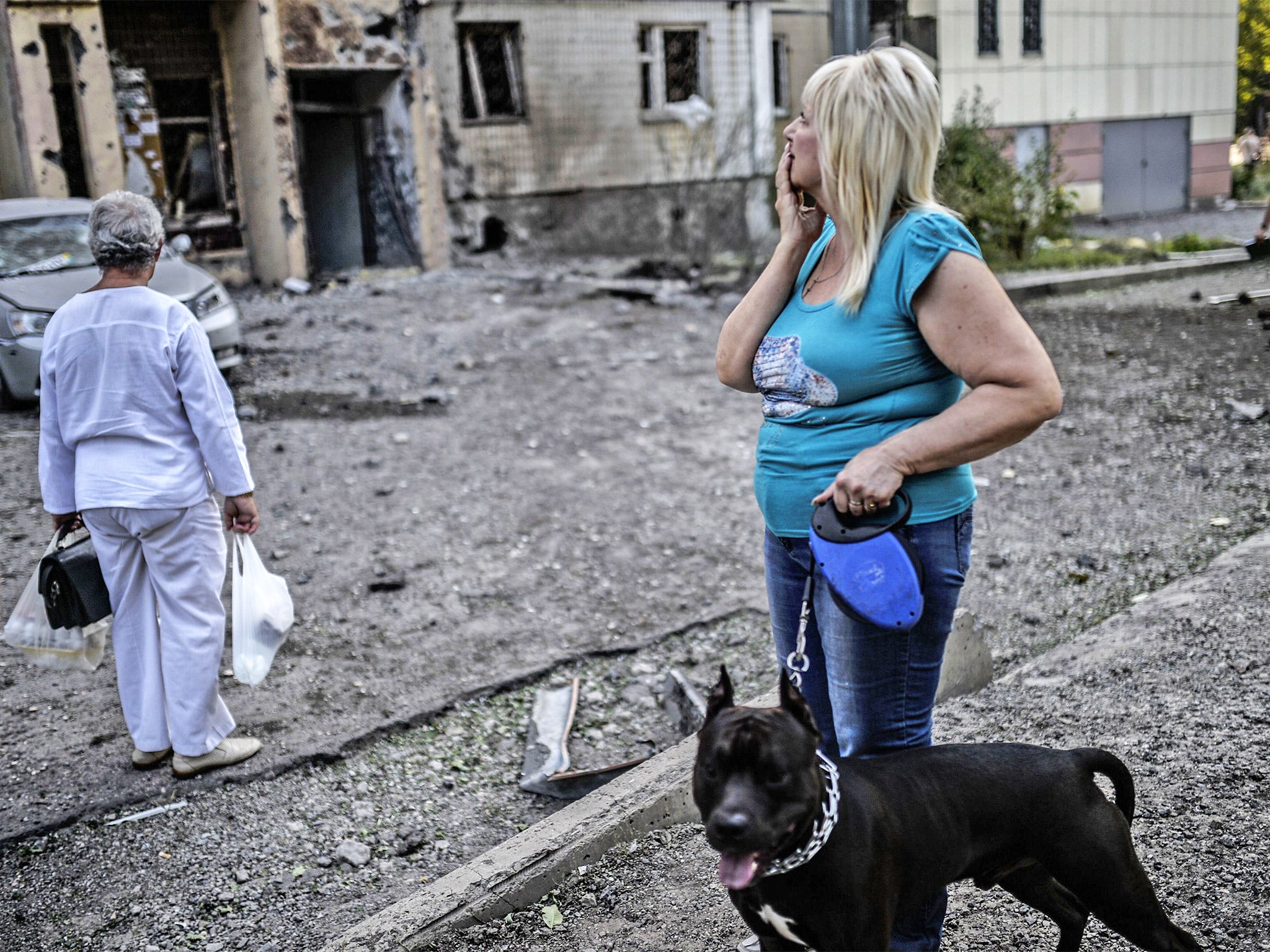Ukraine crisis: Worse bloodshed feared as new government intensifies action against rebels

Your support helps us to tell the story
From reproductive rights to climate change to Big Tech, The Independent is on the ground when the story is developing. Whether it's investigating the financials of Elon Musk's pro-Trump PAC or producing our latest documentary, 'The A Word', which shines a light on the American women fighting for reproductive rights, we know how important it is to parse out the facts from the messaging.
At such a critical moment in US history, we need reporters on the ground. Your donation allows us to keep sending journalists to speak to both sides of the story.
The Independent is trusted by Americans across the entire political spectrum. And unlike many other quality news outlets, we choose not to lock Americans out of our reporting and analysis with paywalls. We believe quality journalism should be available to everyone, paid for by those who can afford it.
Your support makes all the difference.Shells smashed into a residential neighbourhood of Donetsk today as Ukrainian forces intensified their campaign to encircle the rebel stronghold. The shelling killed a number of people, blew gaping holes in an apartment block, and raised fears that the city is on the verge of severe bloodshed.
Fighting also raged elsewhere in Ukraine’s troubled east, bringing the death toll to more than 20 civilians and 10 soldiers over the past 24 hours. And it prevented international investigators once again from visiting the site of the Malaysia Airlines MH17 jet shot down earlier this month.
The increased danger to civilians has brought sharp criticism from the United Nations and human rights groups. But each side blames the other for shelling residential areas.
The rebels insist the attacks are evidence of what they describe as the government’s indiscriminate oppression of its own people. But Ukraine insists that it has banned the use of artillery in residential areas and in turn accuses separatists of targeting civilians in an effort to discredit the army.
Donetsk until recently had seen little fighting other than a rebel attempt in May to seize the city’s airport. But the barrage, along with last week’s shelling of the city’s main railway station, has brought the war painfully close to the city of nearly one million. Ukrainian forces have made advances against rebels in nearby towns.
Fighting between Ukrainian forces and pro-Russia separatists also has been heavy around Luhansk, the second-largest city held by the rebels. At least five people died when artillery fire hit a home for the elderly there on Monday, local authorities said.
“This is done by terrorists,” said Andriy Lysenko, a spokesman for Ukraine’s national security council, referring to the shelling of civilians. “Under instructions from the president, in residential areas and communities where we have Ukrainian citizens, we do not fire artillery or perform air strikes.”
But rebels accuse the government of indiscriminately using heavy artillery against residential neighbourhoods in areas under their control.
Heavy fighting has also spread to other areas in the region, including towns not far from the crash site of MH17. Security officials claimed another advance today with the retaking of Debaltseve, a town east of Horlivka that lies at the intersection of two vital highways.
Mr Lysenko said that as well as soldiers’ deaths, another 55 had been wounded in fighting over the past day.
A team of Dutch and Australian police officers and forensic experts is stationed in Donetsk in the hope of travelling to the fields where MH17 came down. For the third day running, the delegation was forced to cancel plans to travel to the area of the wreckage.
Rebels also accused the Organisation for Security and Cooperation in Europe (OSCE), another group seeking access to the area, of serving US and Ukrainian interests and threatened to ban it from the crash site.
AP
Join our commenting forum
Join thought-provoking conversations, follow other Independent readers and see their replies
Comments